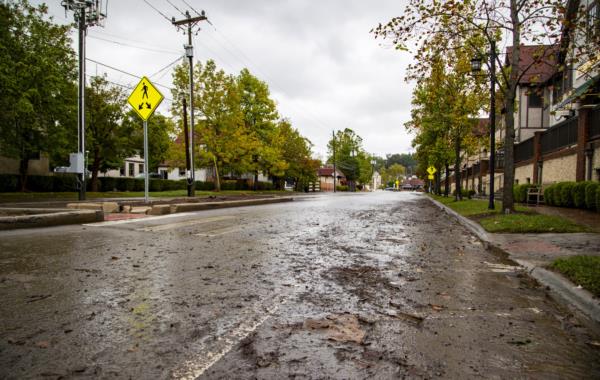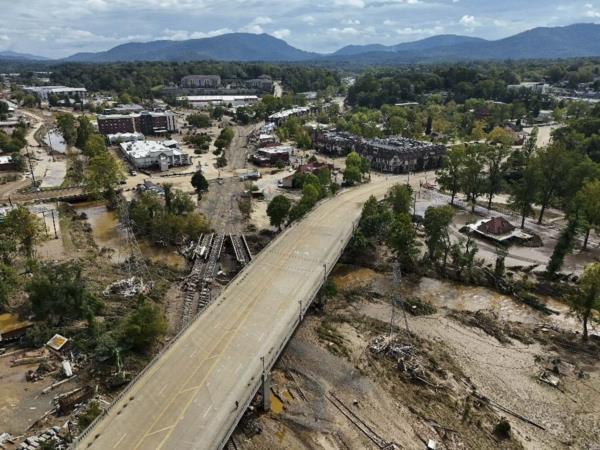
Asheville, North Carolina, known as a hub for climate science, is now grappling with the devastating aftermath of Hurricane Helene. The city, located in Buncombe County, has been hit hard by days of relentless flooding, resulting in numerous casualties and leaving many residents stranded and in urgent need of assistance.
Home to a significant concentration of climate scientists, Asheville boasts a high number of experts dedicated to studying climate change. The city is host to NOAA's National Center for Environmental Information, which manages the world's largest climate data archive. However, the recent climate disaster has disrupted the work of these scientists, as the data center is currently non-operational due to infrastructure damage caused by the flooding.
John Bateman, a meteorologist and spokesperson for NOAA, explained that the NCEI federal building in downtown Asheville is without running water, rendering it uninhabitable until the issue is resolved. This setback has implications for the agency's ability to track and analyze extreme weather events, such as Hurricane Helene, which is expected to be classified as a billion-dollar disaster.



The irony of a climate-focused city like Asheville being directly impacted by a climate disaster has not gone unnoticed. Climate communicator Susan Hassol, a resident of Asheville, expressed surprise at the vulnerability of the region despite its reputation for relative climate safety. She highlighted the aging water infrastructure in the area as a contributing factor to the severe flooding experienced.
Despite Asheville's reputation for being at a higher elevation and less prone to drought and wildfires, the recent catastrophic flooding serves as a stark reminder of the unpredictability of climate change. Hassol emphasized that no place is immune to the effects of the changing climate, referring to the current situation as an 'unnatural disaster of biblical proportions'.
The events unfolding in Asheville underscore the urgent need for communities to prepare for and adapt to the increasing frequency and intensity of extreme weather events driven by climate change. The city's experience serves as a poignant reminder that even those at the forefront of climate science are not immune to the impacts of a changing climate.







